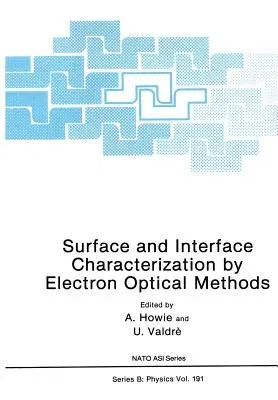Surface and Interface Characterization by Electron Optical Methods (1988)Paperback - 1988, 25 November 2012

Qty
1
Turbo
Ships in 2 - 3 days
In Stock
Free Delivery
Cash on Delivery
15 Days
Free Returns
Secure Checkout
Part of Series
NATO Asi Subseries B:
Part of Series
NATO Asi Subseries B: (Closed)
Print Length
319 pages
Language
English
Publisher
Springer
Date Published
25 Nov 2012
ISBN-10
1461595398
ISBN-13
9781461595397
Description
Product Details
Book Edition:
1988
Book Format:
Paperback
Country of Origin:
NL
Date Published:
25 November 2012
Dimensions:
24.41 x
16.99 x
1.75 cm
ISBN-10:
1461595398
ISBN-13:
9781461595397
Language:
English
Location:
New York, NY
Pages:
319
Publisher:
Weight:
530.7 gm

